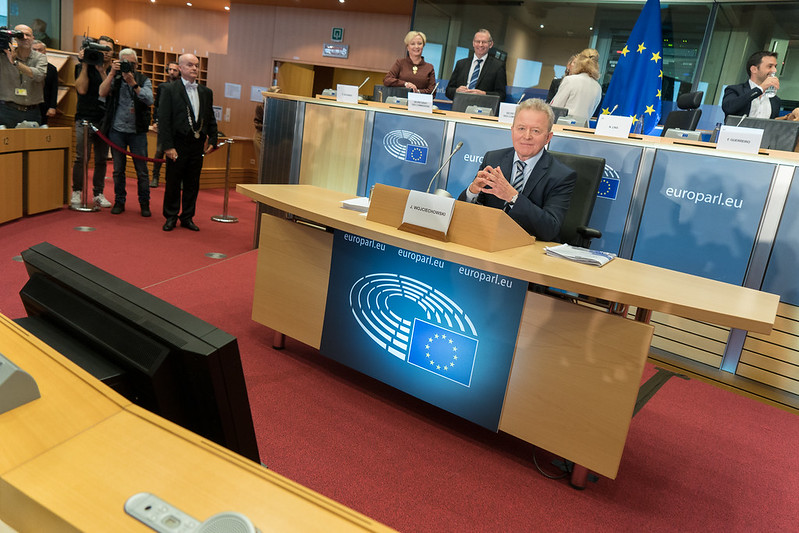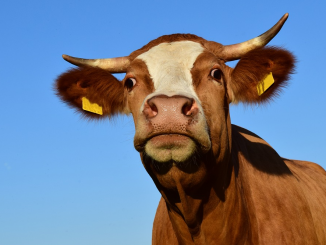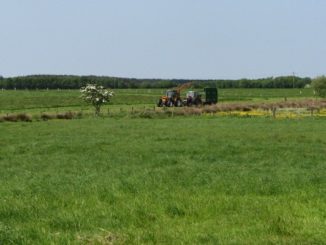
By Justyna Zwolińska in Poland.
In this opinion piece from Justyna Zwolińska, who hails from Janusz Wojciechowski’s home country of Poland, we hear some reasons for optimism about the recently appointed Commissioner: both his previous track record and his initial musings give cause for hope, Zwolińska contends.
“Among various ecological activists, you enjoy a good reputation and raise a lot of hope.” This was how Irish MEP L.M. Flanagan addressed Janusz Wojciechowski during the second hearing for the EU Commissioner for Agriculture in the European Parliament.
Indeed, those familiar with the work of this former Polish MEP, will know he not only has considerable knowledge about agriculture, but also for many years was involved in the protection of animals in the EU as member and chair of the inter-party group on animal welfare. This included shortening the transport of animals to 8 hours, attempts to limit the preventive use of antibiotics in industrial farming or fighting the extermination of stray dogs in Romania.
In September 2014, he became the chairman of the Intergroup on the Welfare and Conservation of Animals in the European Parliament, which connects members from all EU political groups. During his hearing, he repeatedly emphasised that animal welfare is of importance to him. He added, though, that he did not envisage adding new bans and restrictions to laws already in force, because the EU has “the highest standards in the world” in the field of animal protection.
It is worth noting that it is not difficult to have the highest standards when we are comparing them to countries outside the EU where there is either no protection at all or extremely low animal welfare standards. Rather Wojciechowski preferred to “encourage farmers to undertake activities voluntarily” to increase animal welfare. What other declarations regarding the new Common Agricultural Policy 2020-2027 did the new Commissioner for Agriculture make?
Agricultural land and young farmers
First, he referred to the drastic decrease in the number of farms in the EU (“we lose more than 1000 farms per day”[1]), massive land concentration in the hands of large entities and marked aging of rural populations – only 6% of EU farmers are under 35 years old.
The reason for this alarming statistics is primarily the increasing difficulty to access agricultural land and difficult living conditions in the countryside compared to the city.
Wojciechowski announced he would implement EU monitoring of agricultural land management and changes in ownership, a review of national legal solutions that protect national agricultural land resources, as well as providing incentives for young people to enter farming.
He emphasised the difficulty in regulating access to agricultural land in the EU because property issues are almost exclusively the responsibility of the Member States according to EU law. At the EU level, one can only analyse the situation – e.g. that 3% of EU farms own 52% of agricultural land – and make recommendations.
He also added that “capping” or limiting subsidies for the largest farms and redistributing these funds to small and medium-sized farms might slow down the process of land concentration in the EU. However, this capping still is a highly controversial issue, as obviously there are large vested interests in maintaining the status quo. In addition, in the EU Council there is no consensus on the definition of a “genuine” or “active farmer” – i.e. the one who actually farms and lives in the countryside.
International trade agreements and the EU agricultural market
Despite the strong resistance of EU citizens, the European Commission negotiates and signs more and more international agreements concerning, among others, liberalisation in trade of agri-food products.
Wojciechowski announced that these trade agreements must not threaten the interests of European farmers, e.g. through the influx of cheap food causing the decline in the competitiveness of EU agricultural production. He would seek to establish tariff quotas to prevent the community market from being flooded with imported food and feed.
In cases where EU farmers’ interest are harmed, he said he would use the crisis reserve (so far un-used for repeated crises), which he expected to raise from EUR 400 million to EUR 500 million. He also wanted to make EU animal production independent of imported feed (mainly soya meal including genetically modified beans) and develop protein crop cultivation programmes in the Member States in connection with farm animal welfare and short food chains.
Wojciechowski sees the positive benefits in supporting short supply chains, i.e. combining local agricultural production with local processing and building local food markets, thereby strengthening the market position of EU farmers and improving the condition of rural areas. “I will encourage such programmes to be included in the strategic plans of the Member States and to be effectively financed from the second pillar of the CAP”, he said.
Yet he missed that crop rotation -carried out since medieval times in Europe- was already in conditionality rules in the old Commission’s CAP proposal. And a simple addition of basic good agronomic practice, to have leguminous crops included in a mandatory rotation, would already bring multiple benefits. Or eco-schemes could be used to reward or incentivise longer rotations with legumes, while leaving rural development paying for complex but more beneficial rotations: there are in fact many options already possible to avoid destroying rainforests or relying on Genetic Modification.
Environment and climate
Janusz Wojciechowski is the third Agriculture Commissioner who faces the enormous challenge of making the CAP fit to withstand increasing environmental and climatic threats. Yet he is not in as comfortable a position as Dacian Ciolos (2009-2014), who had the opportunity to reform the CAP from scratch. Wojciechowski inherits the reform package developed by the previous EU Commission, although he some room for manoeuvre within the already established framework of the proposed future CAP and the European Green Deal, which is due to look more broadly at sustainable food policy.
Yet he is the first Commissioner who in his speech emphatically declared his support for organic farming. He wants it strongly financed from the CAP budget, and to develop a new Action Plan for Organic Farming and Organic Food, strengthen the credibility of organic food certification and promote organic food, because “we have to produce healthy food”.
According to Wojciechowski, the chance for European agriculture is not the quantity of food produced, but its quality; an echo perhaps of his predecessor Franz Fischler’s motto “Klasse statt Masse”.
Despite these good intentions, it is important to analyse his words, as they may raise some doubts. His first performance was very badly received by the Agriculture committee, and he was already in defence mode for his second hearing; trying to please both ecologists and the big, intensive farming lobby.
On one hand, he declared his commitment to the CAP not damaging the environment. On the other, he said he would support 20% or 30% of 1st pillar funds ring-fenced for eco-schemes, noting that 20% seemed a good figure.
This is certainly better than the lack of any percentage in the Commission’s original text. But it is rather weak compared to the early consensus for 30% reached between all political groups except EPP and the extreme right early in the 2019 parliament negotiations (subsequently abandoned by the Liberals), and secondly the emerging position of the Council.
Cracks began to show when he spoke about food security for 500 million Europeans that only large, high-volume farms can provide. The role of small and medium-sized farms, so strongly emphasised in his first hearing, suddenly shrank to ensuring the vitality of rural areas and the protection of the rural landscapes.
This opinion is completely contrary to the evaluation of the United Nations Food and Agriculture Organisation (FAO), that the biggest guarantee not only of global food security, but also food sovereignty, are precisely small and medium-sized farms, that still feed 2/3 of the world’s population.
In saying only industrial farming delivers food security, he also contradicted his previous declaration to stop further concentration of agricultural capital in the hands of large entities operating in agriculture. Perhaps Wojciechowski’s assertion that in the EU there is a place for every type of farm (including agri-giants “because their diversity is a European value”) was based on a desire to satisfy the MEPs of the liberal group (RE), the European People’s Party (EPP) and the less ecologically progressive wing of the Progressive Alliance of Socialists and Democrats (S&D) – many of whom were visibly shocked by his statement in the previous hearing, agreeing to help farmers “break free from dependency on the agro-chemical input industry”.
In general, however, all of his statements suggest that he understands the need to green the CAP and to achieve environmental and climate goals:
Firstly, on eco-schemes, he believes they should be mandatory for Member States and voluntary for farmers. He also seemed convinced that the list of eco-scheme activities which Member States can implement should be established by the EU institutions. He also backed the idea of performance-based CAP using indicators set at the EU level to achieve environmental and climate goals, with MS having the leeway to choose how to achieve those goals.
So, it allows flexibility for the planning of eco-schemes by Member States, but to a limited extent. Wojciechowski also mentioned that the proposals related to the environment and climate in the CAP are “a very offensive concept” for farmers. Therefore, farmers are afraid of new obligations, coercion to environmental and climate actions that they (often inaccurately) perceive to cause additional costs and deprive them of their competitiveness (adding space for non-crop biodiversity actually increases yield and productivity).
For this reason – according to Wojciechowski – every pro-environmental and pro-climate instrument in the CAP should be offered to farmers in the form of incentives. These would not only be financial, but also in the form of educational, advisory and investment support for farmers who create added value by strengthening the ecological sustainability of agricultural production and achieving the EU’s environmental and climate goals.
He also cautioned the use of measures to achieve these objectives, so that “by fighting for an agriculture that protects the environment and the climate one does not destroy agriculture itself”. In his opinion, the existence of strong agriculture in Europe is the first condition for good environmental and climate protection, so we must first strengthen farming itself and “only in the second step take all those measures that will increase the contribution of agriculture to the environment and the climate.”
This is a surprising logic, especially since the CAP reform – and the scientific basis of climate resilience and agroecology such as the recent UN IPBES global assessment[2] – has completely the opposite approach: namely that a strong natural environment is the first condition for a strong agriculture.
So, on the one hand, a cautious green light for ecology. On the other, repeating the idea that “only big can do”, and the environment and climate are of secondary importance in the pursuit of strong and competitive EU agriculture.
Moreover, Wojciechowski’s statements lacked a firm voice on genetic modifications in agriculture, comprehensive protection of pollinators, limiting the use of pesticides and artificial fertilisers, and cutting back on the polluting and destructive, industrial-scale animal production.
Show me the money
According to Janusz Wojciechowski, strong agriculture also means obtaining as large as possible a budget for the CAP. He promised to fight for an increase to the 365 billion Euros proposed for EU agriculture within the long-term EU budget (multiannual financial framework or MFF).
In addition, he pointed out that financial support for rural areas cannot almost exclusively come from the Rural Development Fund. A wide stream of public EU money should flow there, including from the Cohesion Fund. Moreover, he promised to equalise direct payments to a fair average across all member states during his term of office: Not surprising, given he was more outspoken on this issue than on animal welfare in his time as an MEP.
The question as to how much the new Commissioner of Agriculture and Rural Development will be able to realise his promises remain unanswered for now. The success of his intentions depends on not only the interests of individual member states, but above all, of global agri-food corporations being more and more privileged under global trade treaties.
However, we still hope that the state of the natural environment and the situation of small and medium-sized farms in the EU remain a priority for Janusz Wojciechowski.
I gave him the title of the “Commissioner of Hope” rather in advance, in expectation of real and fundamental changes in EU agricultural policy. I know that hope dies last. So perhaps, we still have time to save EU agriculture from the self-harm committed in the name of unstoppable growth, free trade and unnecessary competitiveness.
Justyna Zwolińska, Advocacy Coordinator, Living Earth Coalition – Koalicja Żywa Ziemia
[1] According to Eurostat we lost 4.2 million farms 2006-2016 = 1150 per day = 4 farms every 5 minutes, on average
[2] https://ipbes.net/global-assessment UN global assessment report on biodiversity and ecosystem services




